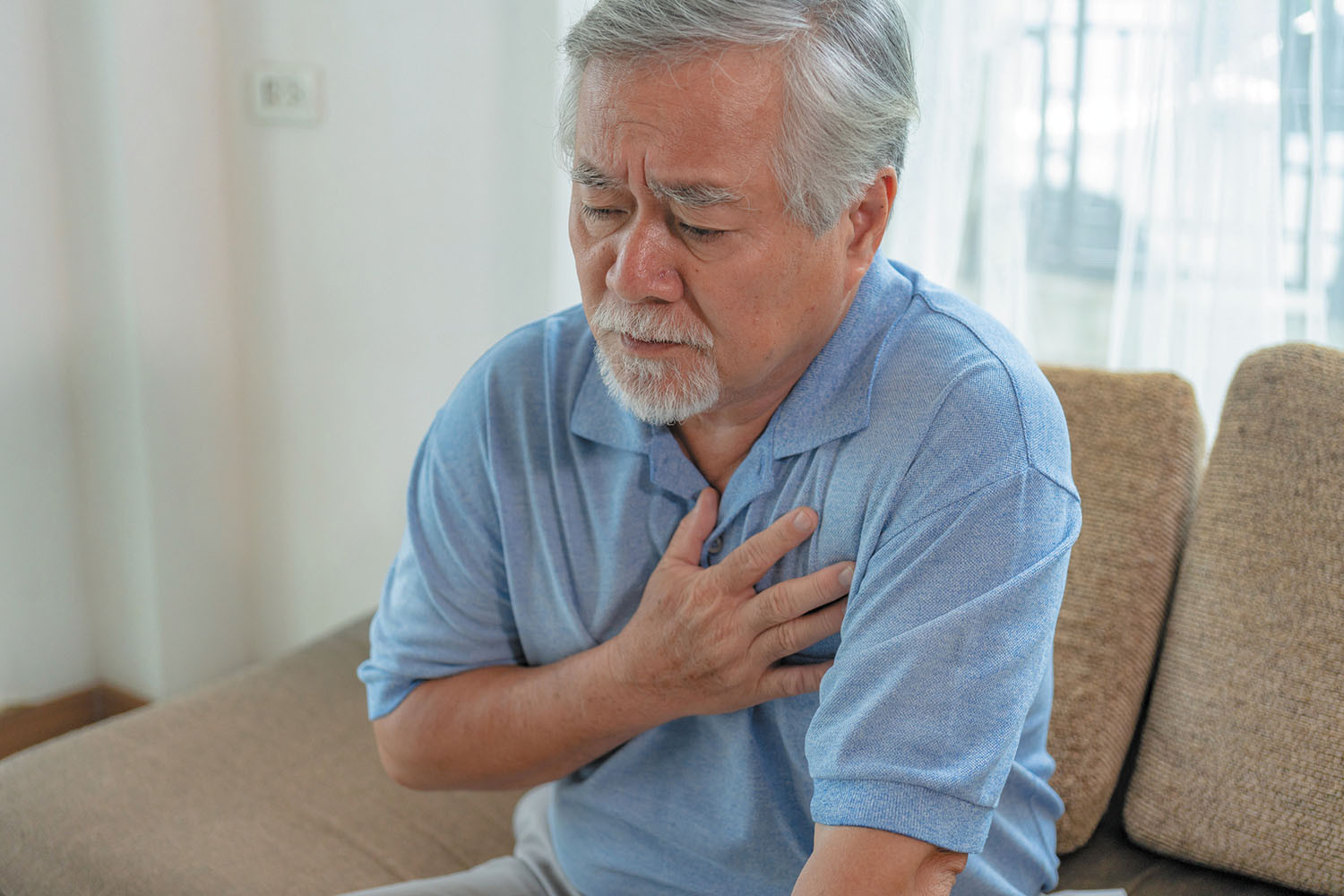
5 timeless habits for better health

What are the symptoms of prostate cancer?

Is your breakfast cereal healthy?

When pain signals an emergency: Symptoms you should never ignore

Does exercise give you energy?

Acupuncture for pain relief: How it works and what to expect

How to avoid jet lag: Tips for staying alert when you travel

Biofeedback therapy: How it works and how it can help relieve pain

Best vitamins and minerals for energy

Should you take probiotics with antibiotics?
Heart Attack Archive
Articles
Weather and air pollution linked to heart-related hospitalizations
Lower temperatures, high wind speed, atmospheric pressure, high precipitation, and high degrees of pollution may raise the risk of being hospitalized for serious heart-related conditions. Modeling these factors may help forecast future heart problems.
Statin alternative lowers heart-related deaths
The cholesterol-lowering drug bempedoic acid (Nexletol) can be a good alternative for people who can't take statins. A 2023 study found that compared with a placebo, bempedoic acid can lower the risk of heart attacks and related problems.
Heart attacks may speed cognitive decline
Accelerated cognitive decline may be more common after a heart attack, probably because the same factors that lead to narrowed heart arteries (the root cause of most heart attacks) can also cause tiny, silent strokes. An accumulation of these strokes shows up as bright areas (called white matter lesions) on an MRI scan. These lesions are markers of typical cognitive changes that occur with age. But people who have heart attacks likely have more white matter lesions and experience even greater cognitive decline.
Heart attacks strike in different ways
There are two different mechanisms by which most heart attacks happen. Both are related to insufficient blood flow to an area of the heart, most often secondary to fatty plaque buildup in coronary arteries. Chest pain remains the most common heart attack symptom, but others are often subtle, and the underlying process causing the heart attack can differ. It's important for people to recognize the different signs of heart attacks, so they know when to seek immediate medical care.
Calm your anxious heart
Anxiety disorders promote the stress response, which influences the same brain systems that affect cardiovascular functions.
The (almost) last word on alcohol and health
Research into the health benefits of alcohol has not provided a clear answer. Some findings suggest that alcohol helps protect against heart disease and lowers the risk of heart attacks and strokes, and drinkers tend to live longer than nondrinkers. Other studies say these benefits are less clear. If you don't drink alcohol now, there are no health reasons to start drinking. If you do enjoy it, it's best to have no more than 2 drinks in the same day.
Our evolving understanding of the problem with plaque
New imaging techniques that use light or sound waves to create images of the inside of coronary arteries have helped researchers better understand the fat-laden plaque that builds up inside artery walls (atherosclerosis). Most heart attacks happen when small, inflamed areas of fatty plaque rupture suddenly, causing a clot that blocks blood flow. This may explain why treating large, obstructive plaques with stents or bypass surgery does not seem to prevent heart attacks or help people live longer.

5 timeless habits for better health

What are the symptoms of prostate cancer?

Is your breakfast cereal healthy?

When pain signals an emergency: Symptoms you should never ignore

Does exercise give you energy?

Acupuncture for pain relief: How it works and what to expect

How to avoid jet lag: Tips for staying alert when you travel

Biofeedback therapy: How it works and how it can help relieve pain

Best vitamins and minerals for energy

Should you take probiotics with antibiotics?
Free Healthbeat Signup
Get the latest in health news delivered to your inbox!
Sign Up











